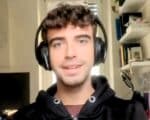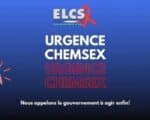>> Clyde Rathbone: ‘I’m in love with a gay man’
Le rugbyman préfère parler de « bromance » qu’il partage avec un frère, athlète professionnel qui a du cacher son homosexualité.
Sans donner aucun nom, Rathbone raconte le calvaire qu’a du subir son John (prénom d’emprunt) durant sa carrière. « Il est l’une des personnes les plus courageuses que je connaisse. La plupart de sa vie, sa sexualité a été un véritable fardeau qu’il a du porter comme une ancre autour du cou » rapporte le joueur à propos de son ami homosexuel qui aurait été « mis au placard ».
Le rugbyman raconte aussi comment le fameux John se sent mieux depuis qu’il a évoqué son homosexualité à ses proches, amis et famille. « Des mots comme pédés ou homos ne sont pratiquement plus acceptés dans n’importe quel travail alors que dans le monde sportif axé sur la testostérone, ils sont monnaie courante » n’hésite pas à dire Clyde Rathbone.
>> It’s a bromance born out of deep respect and admiration for a kindred spirit. My friend is as close to a brother as a person not born of the same mother can be. He’s one of the bravest people I know. And for most of his life he carried the burden of his sexuality like an anchor around his neck.
In writing this piece, I spoke with my friend (I’ll call him John) about his experience as a gay man in a professional sporting environment.
This is a small insight into his story.
“For as long as I can remember, I have known that I am gay. I didn’t accept it until my late teens and for a long time I would punish myself for certain thoughts in an attempt to condition myself out of my ‘gayness’.
« Things became increasingly difficult for me because I knew I was gay, and after various ridiculous attempts to change this – it wasn’t going away. At the same time I was passionate about excelling in my sport. The two stereotypes of ‘gay’ and ‘professional athlete’ caused me a lot of internal conflict.”
When I think about the stigma reserved for the gay community, it is easy to understand why John struggled as much as he did. Gay people aren’t simply different, they are different in a way that makes them less moral. And what’s more, they made the »lifestyle choice » to be this way, haven’t you heard?
When a culture relentlessly reinforces a particular narrative it becomes increasingly difficult to challenge it. And professional sport is often a deeply homophobic environment.
Words such as “faggot” and “homo” are not accepted in most workplaces, but in the testosterone-driven world of men’s sport, they remain commonplace.
John continued: “Aged 18 I became involved in a professional sport. This was my dream come true, and nothing was going to stop me making the most of the opportunity. I deliberated at length at the time and decided that to achieve my goals it was important to be judged for what I did, and not what I was. So I decided to keep being gay a secret. This decision turned into a slow, self-imposed torture.
« I have spent my life terrified that ‘coming out’ to my friends would break their trust. I worry that they will think I’m a fraud for lying to them for so long. And I couldn’t live knowing that the people closest to me didn’t think I was a genuine person. The people who know me think I’m a truthful and honest individual. This is important to me and it’s a conflict I am still dealing with.”
Suffering of this kind is desperately sad, and a reminder that while attitudes towards homosexuality are improving, many gay people remain deeply affected by societies that define them by their sexuality.
John: “I didn’t tell anyone that I was gay until my mid-20s – not my family, not my friends, absolutely no one. I eventually came out to some people close to me who I trust. This decision made itself, in that I hit rock bottom in the weeks leading up to my decision to talk. I was a wreck. I would spend most of my personal time in tears, my thoughts were becoming dangerous to my well-being and I knew if I didn’t speak up my life was at risk.”
I asked John his opinion about how sport can address homophobia.
John: “Addressing this situation in professional sport is very difficult. Lots of things are written, lots of things are said, and there are plenty of good intentions shown by athletes, administrators and fans alike. »
This week in Sydney the main football codes as well as Cricket Australia united in their commitment to rid sport of homophobia. New anti-homophobia and inclusion frameworks will be implemented by the end of August.
John: « It is important to express that being gay is not a disease, that gay athletes will be accepted in sport. I applaud this work. But it’s not enough to persuade all gay athletes that it is OK to come out.
« I feel that addressing the vocabulary we use is important, but I think this addresses the problem in a very superficial way. I don’t want people not to say what they think, I want them to realise how ignorant their words are and recognise the harm that these words can do.
« We have to continue to educate people. Sporting organisations can create environments that nurture curiosity and encourage rational thought. I think a byproduct of changing the way we think leads to a willingness to embrace differences in people.”
John had this to say about coming out to his friends and family:
John: “Talking about this has been the most freeing decision I have made and I feel grateful to have had people in my life who I am comfortable talking to – some people don’t have this luxury.
« My world changed when I spoke to people. In my mind over 20-odd years I grew my sexuality into a world-ending problem – the truth is that it isn’t, and speaking with people close to me gave me a rational perspective again.
« We should not avoid this conversation, it is a conversation that must be had.”


















